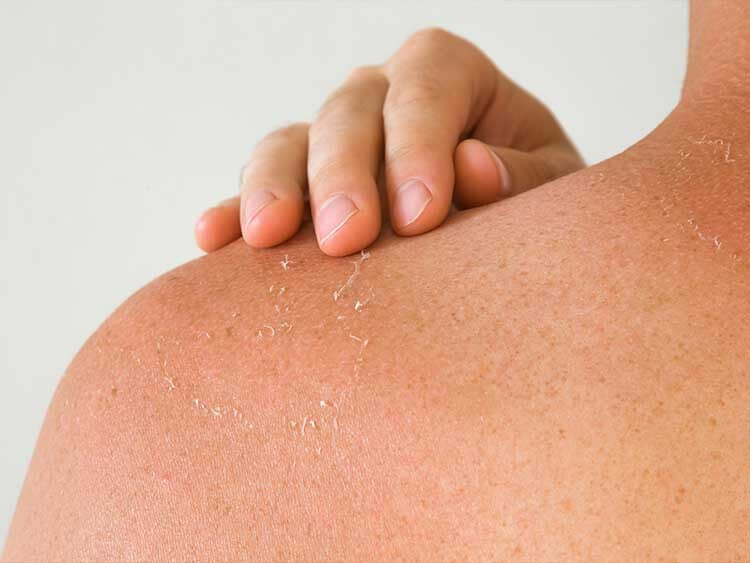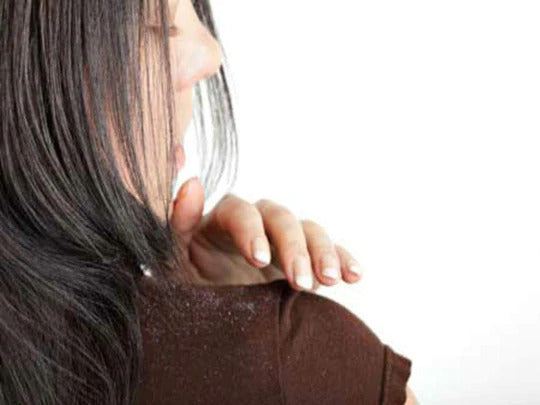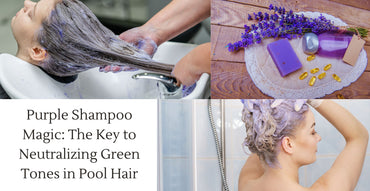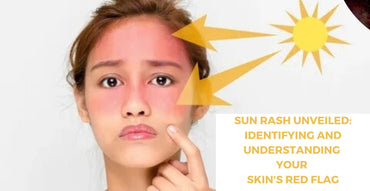Acne can be annoying and difficult to treat, but understanding its origins, forms, and effective treatment choices can help you manage and, eventually, clean your skin. Acne is a common skin condition caused by a variety of factors such as genetics, hormonal fluctuations, nutrition, and skincare routines. This blog provides an in-depth look into obstinate acne.
Understanding Stubborn Acne
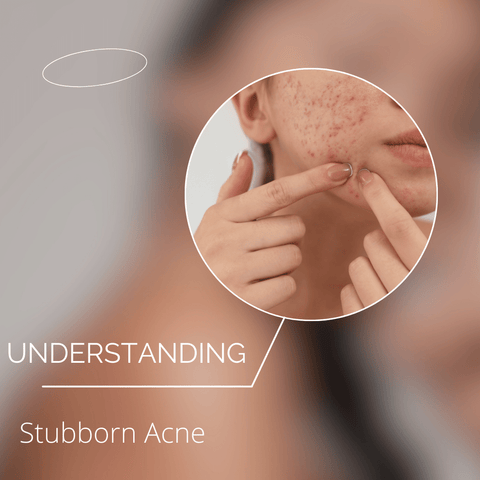
Stubborn acne is a type of acne that is persistent and often resistant to therapy, making it difficult to manage. To gain a better understanding of obstinate acne, it is necessary to investigate its characteristics:
-
Stubborn acne tends to persist for an extended period of time, sometimes for years, rather than clearing up on its own or with standard treatments.
-
Even after periods of improvement, stubborn acne frequently resurfaces with new breakouts, making it difficult to maintain consistent, clear skin.
-
It may be resistant to over-the-counter (OTC) acne treatments or may necessitate more aggressive treatments, such as prescription medications.
-
Due to the deep inflammation and repeated breakouts, stubborn acne is more likely to leave permanent scars, including pitted or raised scars.
A dermatologist should be consulted to identify the best treatment approach for your individual kind and degree of obstinate acne. Be patient and diligent with your treatment programme, since benefits may take some time to appear. Furthermore, preventive skincare practises and a healthy lifestyle can aid in the maintenance of clear skin and the prevention of future acne breakouts.
Is Stubborn Acne Really Acne?
Stubborn acne is a type of acne. Acne is a broad term that refers to a variety of skin diseases characterised by pimples, blackheads, whiteheads, cysts, and other blemishes. Stubborn acne is a type of acne that is persistent, long-lasting, and generally resistant to standard over-the-counter (OTC) or prescription drugs. Recurrent breakouts, treatment resistance, and scarring can all be symptoms of stubborn acne. The causes of obstinate acne are the same as those of more common types of acne and include hormone imbalances, heredity, nutrition, skincare habits, and stress. However, obstinate acne is more resistant to treatment and may necessitate a more complete and tailored approach. If you have persistent and difficult acne that does not seem to respond to over-the-counter medicines, you should contact a dermatologist. A dermatologist can give an accurate diagnosis, assess the severity of your acne, and recommend a treatment plan that is suited to your unique needs and skin type. To properly manage and improve your skin condition, you may need to use prescription drugs, topical treatments, lifestyle modifications, or dermatological surgeries.
Types of Stubborn Acne
Stubborn acne, like other varieties of acne, can present in a variety of ways. These acne types frequently reject over-the-counter medicines and may necessitate more targeted or vigorous therapy. Here are some examples of frequent types of obstinate acne:
-
Cystic Acne: Cystic acne is one of the most severe and painful types of acne. Large, deep, and inflamed cysts or nodules beneath the skin's surface are what set it apart. These lesions frequently leave significant scarring and are resistant to common acne treatments.
-
Nodular Acne: Nodular acne is characterised by large, hard, and painful lumps beneath the skin. These nodules are deeper than typical pimples and can last for a long time, making them difficult to treat effectively.
-
Papulopustular Acne: This type of acne is distinguished by the presence of numerous red and inflamed pimples (papules) and pimple-like bumps filled with pus (pustules). While not as severe as cystic or nodular acne, papulopustular acne can be stubborn and resistant to over-the-counter treatments.
-
Acne Conglobata: Acne conglobata is a severe and uncommon form of acne characterised by interconnected cysts and abscesses. It is most common on the chest, back, and buttocks and can cause severe scarring.
-
Gram-Negative Folliculitis: A bacterial infection causes this type of acne, which is often resistant to standard acne treatments.
-
Hormonal Acne: Hormonal acne is more common in women and is linked to hormonal fluctuations such as those experienced during menstruation, pregnancy, or polycystic ovary syndrome (PCOS). It frequently manifests as deep, painful pimples around the jawline, chin, and cheeks.
-
Acne Keloidalis Nuchae (AKN): Acne Keloidalis Nuchae (AKN) is a type of acne that primarily affects the back of the neck and the nape area. It causes raised, keloid-like scars and is frequently resistant to treatment.
-
Acne Mechanica: This type of acne is caused by skin friction, pressure, or heat, such as tight clothing, helmets, or backpack straps. It can be obstinate, particularly if the underlying cause is not addressed.
-
Pyoderma Faciale (Rosacea Fulminans): While technically a type of rosacea, pyoderma faciale can have painful nodules, pustules, and redness on the face. It can be difficult to treat.
-
Drug-Induced Acne: Certain medications, such as steroids or certain antiepileptic drugs, can cause or worsen acne. It may be necessary to discontinue the medication or adjust the dosage.
-
Perioral Dermatitis: This condition is similar to acne but affects the area around the mouth. It is characterised by small, red, and inflamed bumps and can be chronic.
-
Mild to Moderate Acne Resistant to OTC Products: While not severe, some people may have acne that does not respond well to standard over-the-counter treatments and may require prescription-strength products or other interventions.
It is important to note that the specific type of stubborn acne may vary from person to person. A dermatologist's correct diagnosis is crucial for determining the most appropriate and effective treatment method. Depending on the origin and severity of the acne, treatment may include topical or oral medications, lifestyle changes, advanced dermatological therapies, or a combination of these approaches.
Common Acne Misconceptions
Acne is a common skin ailment, and various misconceptions and myths have evolved over the years regarding its causes, treatments, and prevention. To properly understand and control acne, it is critical to dispel these myths. Here are a few popular acne myths:
-
Acne is caused by poor hygiene: While keeping your skin clean is important, it is not the primary cause of acne. Genetics, hormonal fluctuations, excess oil production, and inflammation are all factors that contribute to acne. Excessive cleansing or scrubbing of the skin can aggravate acne by irritating it.
-
Eating greasy or oily foods causes acne: While diet can have an impact on skin health, there is no direct link between eating greasy or oily foods and acne. However, certain dietary choices, such as consuming high-glycemic-index foods or dairy products, may aggravate acne in some people.
-
Popping pimples causes them to disappear faster: Popping pimples can result in more severe inflammation, infection, and scarring. It is best to resist the urge to pop and instead seek professional acne treatment.
-
Sun exposure clears acne: While sun exposure may initially dry out the skin and improve the appearance of acne, it can cause long-term damage and worsen acne over time. The sun's UV rays can cause skin inflammation and make acne scars more visible.
-
Acne is not just a problem for teenagers: Acne can affect people of any age, even adults. It is most prevalent during puberty. Adult acne, especially hormonal acne, is a common problem.
-
Acne is not a serious medical condition: Although acne is not life-threatening, it can have a significant impact on a person's emotional and psychological well-being. If untreated, severe acne can cause scarring.
-
Acne is caused by makeup: Non-comedogenic makeup and skincare products are not designed to clog pores and can be used safely by acne-prone individuals. Some cosmetics may even contain acne-fighting chemicals.
-
Exercise can help you "sweat out" acne: While regular exercise has many health benefits, sweating does not clear acne. In fact, excessive sweating and friction can aggravate acne. It is critical to cleanse your skin after exercise to remove sweat and bacteria.
-
Acne will clear up on its own: While some people outgrow acne, many others require treatment to improve and prevent scarring. Ignoring acne can lead to its worsening over time.
-
Toothpaste is an effective acne treatment: Do not apply toothpaste to pimples, as this can irritate the skin and cause further inflammation. There are more effective topical acne treatments on the market.
-
Tanning or using a tanning bed can help with acne: While tanning can temporarily mask the appearance of acne, it can also cause skin damage and worsen acne in the long run.
To effectively manage acne, it is critical to see a dermatologist or other healthcare professional who can provide accurate information, diagnose the type and severity of your acne, and recommend appropriate treatments based on your specific needs.
What Triggers Stubborn Acne?
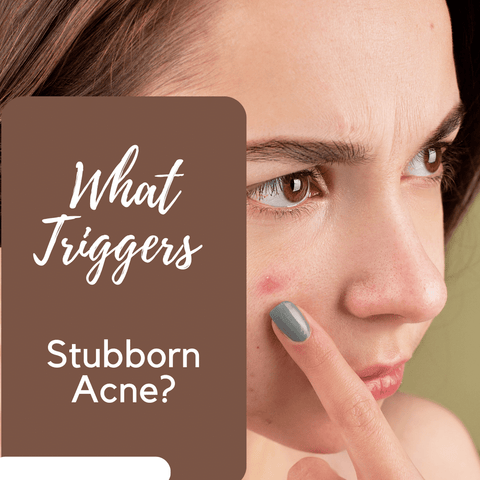
Stubborn acne, like other types of acne, can be caused or exacerbated by a variety of factors. Identifying and comprehending these triggers is critical for controlling and preventing stubborn acne. Here are some of the most prevalent acne triggers:
-
Hormonal Changes: Hormonal changes are a major cause of stubborn acne. This includes puberty, the menstrual cycle, pregnancy, and menopause. Hormones such as androgens (male hormones) can stimulate the sebaceous glands to produce more oil, resulting in clogged pores and acne breakouts.
-
Genetics: Your genetic makeup influences your susceptibility to acne. If your parents or close relatives had acne, you may be more prone to getting it yourself, including stubborn acne.
-
Diet: While the relationship between diet and acne is complex and varies from person to person, certain dietary choices may trigger or worsen acne in some people. Some people associate high-glycemic-index foods (such as sugary and processed foods) and dairy products with acne exacerbation.
-
Skincare Products: Using skincare products that are too harsh, comedogenic (pore-clogging), or not appropriate for your skin type can irritate the skin and exacerbate acne. Furthermore, exfoliation or abrasive scrubs can disrupt the skin's barrier and contribute to acne.
-
Stress: Excessive stress can cause hormonal changes that aggravate acne. Stress-reduction techniques such as mindfulness, meditation, and yoga can be beneficial in the treatment of stress-related acne.
-
Cosmetics and hair care products: Some makeup, sunscreen, and hair products contain ingredients that, if not properly removed at the end of the day, can clog pores and cause acne breakouts.
-
Medications: As a side effect, certain medications, such as corticosteroids, lithium, and some antiepileptic drugs, can cause or worsen acne. Consult your doctor if you suspect a medication is causing skin problems.
-
Overwashing and Exfoliation: Excessive washing or the use of harsh exfoliating products can strip the skin of its natural oils, resulting in increased oil production and potential breakouts.
-
Sweat and Friction: Sweat can contribute to acne development, especially when combined with friction (e.g., tight clothing or hats). To avoid clogged pores, it is critical to shower and cleanse your skin after sweating.
-
Environmental Factors: Pollution, high humidity, and exposure to environmental pollutants can all contribute to acne by clogging pores and irritating the skin.
-
Sleep and Lifestyle Habits: Inadequate sleep, sleep deprivation, and an unhealthy lifestyle (such as smoking or binge drinking) can all affect how well hormones are balanced and the health of the skin, potentially worsening acne.
-
Undiagnosed Medical Conditions: In some cases, undiagnosed medical conditions such as polycystic ovary syndrome (PCOS) can exacerbate hormonal acne. Acne can be controlled by treating the underlying cause.
Acne management frequently necessitates a holistic approach that tackles these factors. A dermatologist consultation is essential for determining the particular factors causing your acne and developing a personalised treatment plan that may include medications, topical treatments, lifestyle adjustments, and changes in skincare practises. Patience and perseverance in following the recommended treatment plan are required for effective acne management.
Hormonal Factors and Acne
Acne development and aggravation are both influenced by hormonal variables. Hormonal acne is a frequent type of acne, and understanding how hormones affect the skin can aid in the management and treatment of this problem. Here's a rundown of the hormonal elements that contribute to acne:
-
Androgens: Androgens are male hormones that are found in both males and females, albeit in varying amounts. Testosterone, dihydrotestosterone (DHT), and dehydroepiandrosterone (DHEA) are examples of these hormones. Androgens encourage the skin's sebaceous (oil) glands to generate more sebum (oil). Excess sebum can clog hair follicles by combining with dead skin cells. Androgens also cause these glands to grow in size and activity, making them more prone to blockage.
-
Hormonal Fluctuations: Hormonal changes, such as those experienced during puberty, the menstrual cycle, pregnancy, and menopause, can cause or exacerbate acne. Many women, for example, suffer from premenstrual acne as a result of variations in oestrogen and progesterone levels. Hormonal changes associated with pregnancy can also have an impact on skin health.
-
Polycystic Ovary Syndrome (PCOS): PCOS is a hormonal condition that causes high androgen levels in women. Because of increased androgen production, women with PCOS are more likely to develop hormonal acne. PCOS also causes irregular periods, excessive hair growth, and ovarian cysts.
-
Oral Contraceptives: Some birth control tablets contain hormones that, by managing hormonal changes, can aid in acne management. Estrogen-containing pills can lower androgen levels, while progestin-containing pills with anti-androgenic qualities can be very beneficial in treating hormonal acne.
-
Hormone Replacement Therapy (HRT): Acne may occur as a side effect of hormone replacement therapy in menopausal women due to hormonal changes. HRT adjustments may be required to manage this.
-
Steroids: The use of anabolic steroids or corticosteroids, whether for medical or bodybuilding purposes, can cause hormonal imbalances that cause acne. Steroid-induced acne is frequently severe and difficult to treat.
-
Stress: Chronic stress can cause the release of stress hormones such as cortisol, which can disrupt hormone balance and cause acne breakouts.
-
Excessive Androgen Production: Some people may have underlying medical conditions or genetic factors that cause androgen overproduction, which contributes to persistent hormonal acne.
-
Insulin and Insulin-Like Growth Factor 1 (IGF-1): High-glycemic-index diets can cause spikes in blood sugar and insulin levels, which can stimulate IGF-1 production. Elevated IGF-1 levels can cause excess sebum production and inflammation, exacerbating acne.
-
Thyroid Hormones: Thyroid hormones can affect the skin's health and may contribute to acne if imbalanced. Both hypothyroidism (underactive thyroid) and hyperthyroidism (overactive thyroid) can have an impact on the skin.
Consult a dermatologist or healthcare provider to determine the underlying hormonal factors causing your acne and develop a personalised treatment plan tailored to your specific needs.
The Role of Genetics in Persistent Acne
Genetics plays a significant role in the emergence of chronic or persistent acne. While environmental and genetic factors interact to affect acne, some people are genetically predisposed to having persistent, long-lasting acne. Here is how genetics relates to persistent acne:
-
Inheritance: Acne often runs in families. You may be genetically inclined to develop similar skin troubles if your parents or close relatives have a history of persistent or severe acne.
-
Sebum Production: Genetic factors may have an impact on the rate and volume of sebum (skin oil) production. Overactive sebaceous glands are more likely to have oily skin, which can lead to closed pores and chronic acne.
-
Inflammation: Genetic variations can have an impact on how your immune system reacts to substances that cause skin inflammation. The main cause of persistent acne is chronic inflammation.
-
Hormonal Sensitivity: Genetic factors can influence your skin's sensitivity to hormonal fluctuations, specifically the effects of androgens (male hormones) on sebum production. This sensitivity can lead to chronic hormonal acne, which is frequently more difficult to treat.
-
Skin Barrier Function: Genetics also has an impact on your skin's barrier function. A weakened skin barrier can make your skin more vulnerable to external irritants and bacterial invasion, potentially exacerbating persistent acne.
-
Treatment Response: Genetic variations can influence how your skin responds to various acne treatments. Some people may require specific medications or interventions to effectively manage their acne based on their genetic makeup.
It is critical to understand that genetics alone do not influence whether or not you will develop persistent acne. Environmental factors like nutrition, skincare practises, stress, and exposure to acne-causing causes all play a part. Furthermore, not everyone with a genetic propensity to acne will develop severe or chronic acne; some may just have mild or infrequent breakouts. To properly manage persistent acne, both genetic and environmental variables must be considered. Consultation with a dermatologist or healthcare professional can assist you in developing a personalised treatment plan that takes your specific genetic predisposition and skin type into account. To control and minimise the impact of recurrent acne, this approach may involve prescription drugs, topical treatments, lifestyle changes, and regular skincare routines.
Diet and Lifestyle: Are They Linked to Stubborn Acne?
Diet and lifestyle choices can both contribute to the development and persistence of obstinate acne. While the relationship between diet, lifestyle, and acne is complex and varies by individual, there is evidence that certain dietary choices and lifestyle factors can influence acne. Here are some of the ways diet might contribute to stubborn acne:
-
High-Glycemic-Index Foods: A high-glycemic-index diet (e.g., refined carbohydrates like white bread and sugary snacks) has been linked to an increased risk of acne. These foods can cause rapid increases in blood sugar and insulin levels, which can lead to increased sebum production and inflammation, both of which can contribute to acne development.
-
Dairy Products: Some studies have found a possible link between dairy product consumption, particularly skim milk, and an increased risk of acne. The exact mechanism is unknown, but it may involve hormones and growth factors found in dairy.
-
Omega-6 Fatty Acids: A diet high in omega-6 fatty acids (found in vegetable oils such as soybean and corn oil) compared to omega-3 fatty acids (found in fatty fish, flaxseed, and walnuts) may promote inflammation and potentially worsen acne.
-
Vitamin and mineral deficiencies: A lack of certain vitamins and minerals, such as vitamin A, zinc, and antioxidants, can have an impact on skin health and contribute to acne.
Here are some of the ways lifestyle might contribute to stubborn acne:
-
Stress: Chronic stress can cause hormonal changes that worsen acne. Stress hormones such as cortisol can stimulate the sebaceous glands to produce more oil, resulting in clogged pores and breakouts.
-
Sleep: Inadequate or poor-quality sleep can disrupt hormone balance and weaken the immune system, potentially making the skin more prone to acne.
-
Alcohol and Smoking: Several factors have been linked to a higher risk of acne, including smoking and binge drinking. Both habits can have an impact on inflammation and skin health.
-
Skincare and Makeup Habits: Using harsh or comedogenic (pore-clogging) skincare products can irritate the skin and worsen acne. Furthermore, failing to properly remove makeup and cleanse the face can contribute to clogged pores and breakouts.
While nutrition and lifestyle might have an impact on acne, it's crucial to remember that these factors interact with other acne causes, including heredity and hormone swings. Diet and lifestyle choices can have a considerable impact on acne, and what works for one person may not work for another. Remember that acne control frequently involves patience and consistency. What works for one person may not work for another, so tailoring your strategy to your unique needs and skin type is critical.
Breaking Down Effective Acne Treatments
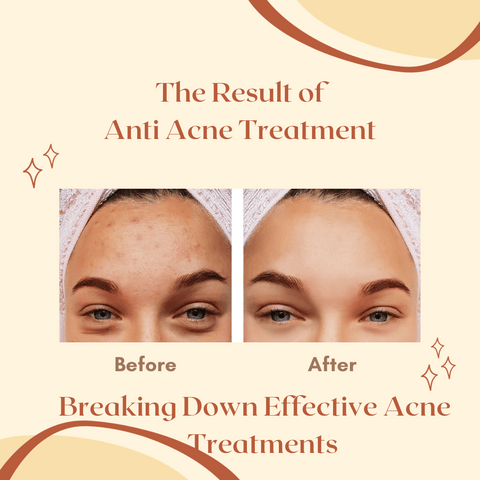
Effective acne treatments may differ depending on the type and severity of acne, as well as individual features such as skin type and tolerance. Approaches to treatment aim to reduce new acne lesions, improve existing acne, and avoid scarring. Topical treatments, oral medications, light and laser therapies, chemical peels, extraction, and lifestyle changes are all common and effective acne treatments. It's important to remember that not all treatments work the same way for everyone, and a dermatologist can advise you on the best course of action based on your unique type and degree of acne. Furthermore, patience and consistency are essential, as significant progress with acne treatments might take several weeks or months.
Dermatologist-Recommended Acne Treatments
Dermatologists are doctors that specialise in the diagnosis and treatment of skin disorders such as acne. Dermatologists can offer a variety of effective acne treatment methods based on your unique kind and degree of acne. Here are several acne remedies that dermatologists recommend:
-
Prescription Topical Medications: Dermatologists frequently recommend topical retinoids such as tretinoin, adapalene, and tazarotene. These drugs increase skin cell turnover, clear pores, and reduce irritation. Prescription topical antibiotics such as clindamycin and erythromycin can be useful in reducing acne-causing bacteria growth and irritation. For increased effectiveness, several prescription treatments combine retinoids with antibiotics or other acne-fighting chemicals.
-
Oral Medications: To minimise inflammation and bacteria, doctors may recommend oral antibiotics such as doxycycline, minocycline, or tetracycline for moderate to severe acne. These are normally used for a limited period of time in order to minimise antibiotic resistance. Oral contraceptives (birth control pills) to balance hormones or anti-androgen drugs such spironolactone to inhibit androgens are frequently used to treat hormonal acne in women. Accutane, or isotretinoin, is a potent oral drug used to treat severe, nodular, or treatment-resistant acne. It reduces oil production, prevents clogged pores, and reduces inflammation, but it has potential negative effects and should be used with caution.
-
Light and Laser Therapies: PDT comprises the application of a photosensitizing chemical to the skin followed by exposure to certain wavelengths of light. This therapy kills acne-causing bacteria while also reducing oil production. Fractional laser therapy and intense pulsed light (IPL) are two laser and light therapies that help enhance skin texture, reduce inflammation, and minimise acne lesions.
-
Chemical Peels: Dermatologists can use acids to exfoliate the top layers of the skin, which can improve acne and reduce the appearance of acne scars.
-
Injection Therapies: Corticosteroids may be injected directly into large, painful acne lesions (cysts and nodules) by dermatologists to reduce inflammation and promote healing.
-
Extraction: Using specialised instruments, dermatologists or experienced specialists can safely extract large or deep-seated pimples and cysts. This can provide immediate relief and aid in scar prevention.
-
Personalised Treatment Plans: Dermatologists personalise treatment recommendations based on characteristics such as skin type, medical history, and lifestyle. To effectively manage acne and prevent recurrent breakouts, they may recommend a combination of the above therapies, lifestyle changes, and skincare products.
A dermatologist should be consulted for a thorough evaluation and to discuss the best treatment options for your specific acne type and needs. Treatments recommended by a dermatologist are typically more potent and targeted than over-the-counter options and can result in better results and clearer skin. Additionally, dermatologists can advise on how to manage side effects and maintain a healthy skincare routine.
Overcoming Stubborn Acne: Tips and Strategies
Stubborn acne can be difficult to treat, but with the appropriate techniques and strategies, you can improve the quality of your skin and reduce breakouts. Here are some useful suggestions and tactics for dealing with obstinate acne:
-
Consult a Dermatologist: Begin by consulting a dermatologist for professional assistance. A dermatologist can correctly identify the type of acne you have, analyse its severity, and provide personalised treatment options.
-
Follow a Consistent Skincare Routine: Wash your face twice a day with a gentle cleanser to remove excess oil, debris, and makeup. Non-comedogenic (non-pore-clogging) skincare products should be used. Apply acne treatments, such as topical medicines given by your dermatologist, as directed.
-
Avoid overwashing and overexfoliation: Overwashing your face can deprive it of natural oils, causing it to produce more oil. Maintain a twice-daily cleansing regimen. Excessive scrubbing or exfoliation can irritate the skin and aggravate acne. Exfoliate only when instructed to do so by your dermatologist.
-
Use Topical Acne Treatments: For prescription or over-the-counter acne treatments, follow your dermatologist's advice. Be patient; apparent improvement may take several weeks.
-
Take Oral Medications as Prescribed: If your dermatologist prescribes oral antibiotics, hormonal medicines, or isotretinoin (Accutane), strictly adhere to the prescription. Consult your dermatologist about any concerns or adverse effects.
-
Avoid Picking or Squeezing Pimples: Picking at acne lesions can result in infection, scarring, and bacterial spread. Avoid this bad habit.
-
Manage Stress: Stress can exacerbate acne. Stress-reduction techniques such as mindfulness, meditation, yoga, or regular exercise should be used.
-
Maintain a Healthy Diet: Consume a well-balanced diet that includes plenty of fruits and vegetables, lean proteins, and whole grains. If you feel that high-glycemic-index foods (sugary and processed meals) and dairy aggravate your acne, limit your intake.
-
Protect Your Skin from the Sun: Use a broad-spectrum sunscreen with at least SPF 30 daily, as some acne treatments can increase sun sensitivity.
-
Be consistent and Patient: Acne treatments take time to work. Even if you do not see immediate results, stick to your dermatologist's skincare routine and medications.
-
Follow Up with Your Dermatologist: Maintain regular appointments with your dermatologist for follow-up evaluations and any necessary adjustments to your treatment plan.
-
Consider Advanced Dermatological Procedures: If appropriate, discuss advanced procedures like chemical peels, light therapy, or laser treatments with your dermatologist.
-
Address Underlying Health Conditions: If you suspect an underlying medical condition like PCOS may be contributing to your acne, discuss this with your healthcare provider for appropriate management.
-
Avoid Heavy Makeup: If you wear makeup, use non-comedogenic products and stay away from heavy, oil-based foundations.
Remember that what works for one person may not work for another, so tailoring your acne treatment plan to your specific needs and skin type is essential. You can improve your acne and achieve clearer, healthier skin with patience and the help of a dermatologist.
The Future of Acne Management
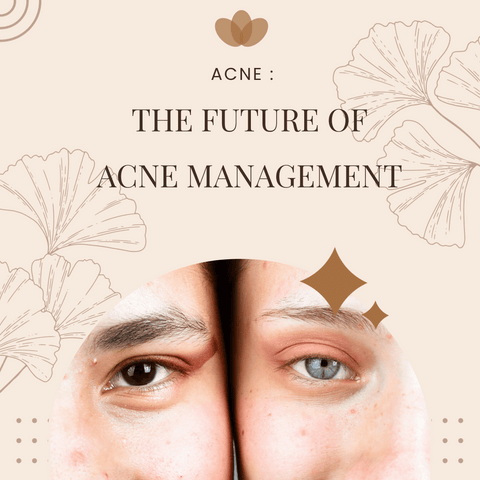
Acne management in the future promises to be more effective and personalised. Dermatology, technology, and research advances are likely to change how acne is diagnosed and treated. Targeted Therapies, Advanced Topical and Oral Medications, Telemedicine and Digital Health, Microbiome Research, Advanced Dermatological Procedures, Education and Prevention, Lifestyle and Holistic Approaches, and Patient Engagement are some anticipated advancements in the future of acne care. It is crucial to highlight that, while these improvements have great potential, it may take some time for them to become generally available and accessible. In the meantime, people suffering from acne should continue to seek the advice of dermatologists and other healthcare providers for the most up-to-date and effective treatment choices. Finally, more personalised and focused therapies, increased patient education, and a larger emphasis on holistic well-being and prevention are expected to characterise the future of acne care. Research and technological advancements will continue to drive improvements in acne control and assist individuals in achieving cleaner, healthier skin.

